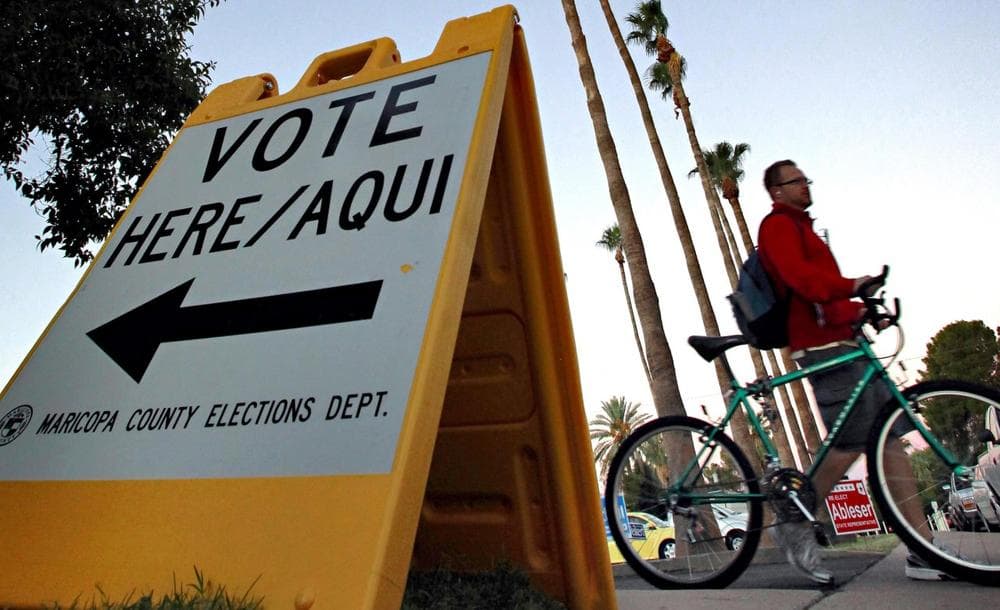Advertisement
Supreme Court Strikes Down Arizona's Voter Law
Resume
The Supreme Court says states cannot require would-be voters to prove they are U.S. citizens before using a federal registration system designed to make signing up easier.
The justices voted 7-2 to throw out Arizona's voter-approved requirement that prospective voters document their U.S. citizenship in order to use a registration form produced under the federal "Motor Voter" voter registration law.
The 9th U.S. Circuit Court of Appeals said that the 1993 National Voter Registration Act, which doesn't require such documentation, trumps Arizona's Proposition 200 passed in 2004.
Arizona officials say their law is needed to stop non-Americans from voting in elections, while opponents see it as an attack on minorities, immigrants and the elderly.
But the high court agreed with the federal government in the case.
The ruling on Arizona's law is one of several by the Supreme Court on Monday. Legal scholar Emily Bazelon weighs in on four of them:
____Interview Highlights____
1. Struck down, by a 7-2 vote, Arizona's proof-of-citizenship law that asks would-be voters for additional documentation before allowing them to register using a federal form designed to make signing up easier.
"There's a federal law that sets forth what people are supposed to provide when they register to vote, and it says that for non-citizens you're supposed to swear that you've been naturalized. The federal law says that states have to 'accept and use' this form. And so the Supreme Court said 'accept and use' can't mean adding on this whole separate requirement that Arizona did."
2. Decided 5-4 that judges may not increase mandatory minimum prison terms when sentencing defendants unless the facts justifying the increase have been found by a jury.
"This is a string of cases the court has issued in the last several years saying that juries — not judges — have to find the facts that determine whether someone goes to prison, and now how long they are sentenced for under a mandatory minimum."
3. Held 5-4 that prosecutors in some instances may use a suspect's silence at an early stage of a criminal investigation against him - before the suspect has been arrested or informed of his constitutional rights.
"At trial the prosecution used the fact that [the defendant] had stopped talking [to police] against him, and he said wait a second, I have a right under the Fifth Amendment not to incriminate myself. The court said no, you have to explicitly say 'I'm invoking my Fifth Amendment right' and since you just kept quiet, the prosecution can point that out to the jury."
4. Ruled 5-3 that agreements between the makers of name-brand and generic drugs to delay the generics' availability can be illegal, an outcome cheered by consumer groups.
"Essentially it's an anti-competitive agreement to keep the generic — which is lower cost — off the market. Solvay [Pharmaceuticals] got paid millions of dollars for just keeping its drug away from customers, and the court said that the FTC, the Federal Trade Commission, can sue Solvay to try to dismantle the agreement because it hurts competition."
Guest:
- Emily Bazelon, senior editor for Slate magazine and senior research fellow at Yale Law School. She tweets @emilybazelon.
This segment aired on June 17, 2013.